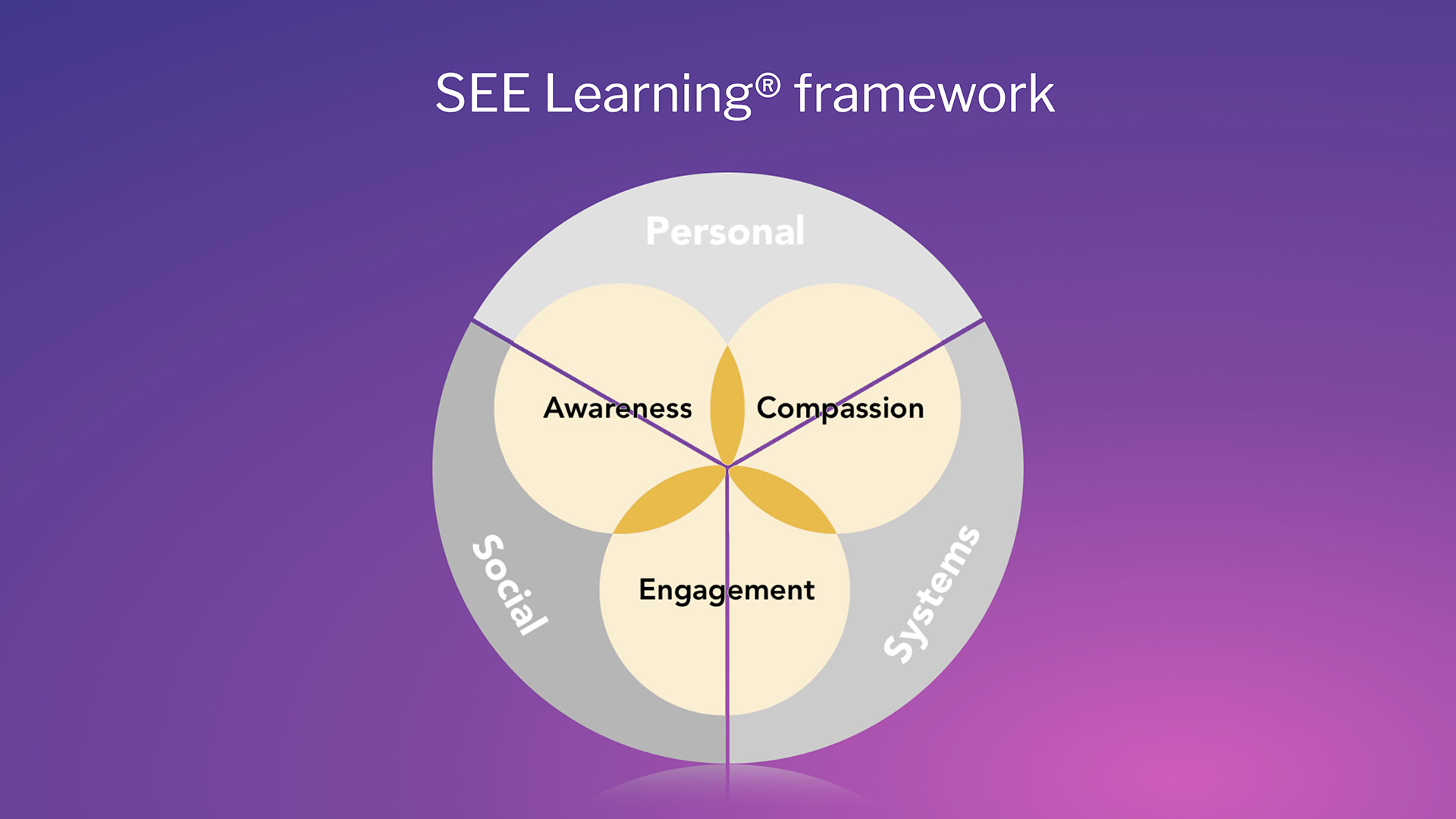
You engage constructively when you help other parties, yourself, and the world. Fulfill your wishes without self-sabotage or harming others along the way.
Mind training offers practices to prevent yourself from inadvertent destructive actions.
Constructive engagement framework
How do you engage constructively, as per SEE Learning®? The framework supported by Dalai Lama and Daniel Goleman:
– “First, one must become aware of the issue or problem.
– Second, one must care and develop an emotional investment that generates motivation to act.
– Finally, one must act skillfully.”

How do you practically apply awareness, compassionate intention, and skillful action?
Awareness as a litmus test
What is your emotional investment in the situation?
In our critical feedback example – a look inside will tell:
- am I balanced, grateful, and compassionate?
- or offended, irritated, and see the other person negatively?
Self-checks reveal the ecology of your interactions and intentions. Are you ready to act gracefully, based on reason and compassion? Or is it best to take a time-out to manage your state and restore your ability to engage constructively?
✅ You are ready to engage constructively
If you experience clarity, your thoughts are light and intentions are constructive. No clouds of agitation, tension, or negative emotions in sight.
In our critical feedback example:
– I am grateful, thank the other person
– I am comfortable using the opportunity to improve.
All of my actions are constructive despite the unpleasant situation:
– I will improve thanks to helpful feedback
– my relationships with my manager will improve, and she will be motivated to give feedback in the future
🛑 You are not ready to engage constructively
If you experience a lack of clarity, and thoughts are “heavy,” intentions are destructive. You notice a cloud of agitation, tension, or negative emotion.
In our critical feedback example:
– say, my insecurity triggers offense:
– I perceive comments about my work as a personal attack
– I confront the other person and make protective excuses
– I am unable to use the feedback because of my negative feelings toward the manager
My engagement is destructive in both intentions and results:
– my motivation is to attack the manager and protect my insecurity
– I harm relationships with the manager and lose the opportunity to improve
Seems pretty straightforward. Destructive motivation leads to destructive actions and consequences.
How would this work for the unintended destructive motivation behind seemingly constructive action?
Modeling behaviors
Have you noticed people using passive-aggressive? Even if they demonstrate empathy, we can usually tell – their negativity is still there. We cannot fully trust their actions to be constructive.
Even if they do not do it on purpose, but self-deceive themselves into playing a good boss, employee, or a partner. Their lack of self-awareness does not save them from the consequences.
We are no different. Our seemingly good behaviors may unconsciously be “fine-tuned” by implicit destructive agendas.
In our critical feedback example:
– my insecurity triggers offense, but I hide my feelings so the manager thinks better of me
– I do not confront her, but fake gratitude, and promise to act on the feedback
– but I am unable to use the feedback because the causes of my negative feelings are still there
– suppressing emotions increases negativity – I start covertly sabotaging her actions
Despite my agreeable behavior on the surface, my engagement remains destructive, even more so:
– the negative reactions are still there, just suppressed
– instead of excuses I lie about acting on feedback (my negativity will sabotage this promise)
– I will still ruin the manager’s trust, and relationships, just a bit later when she finds out I lied to her
– I am losing the opportunity to improve and add the manager’s actions “sabotage” on top of it
If good behaviors are not common sense, not our natural spontaneous response — we may try to model them. Demonstrate what’s expected from us to get tactical wins. But lose strategically.
Integrity compass
Good for us, destructive agendas are not really hiding. If you stop and look inside you can feel the tensions and discomforts they create. Even on the level of your body chemicals.
Use integrity as your compass. Make sure your whole self is OK with your engagement. Don’t let even a part of you go destructive. Genuinely destructive. We are not talking about temporarily unpleasant, but actually helpful things.

